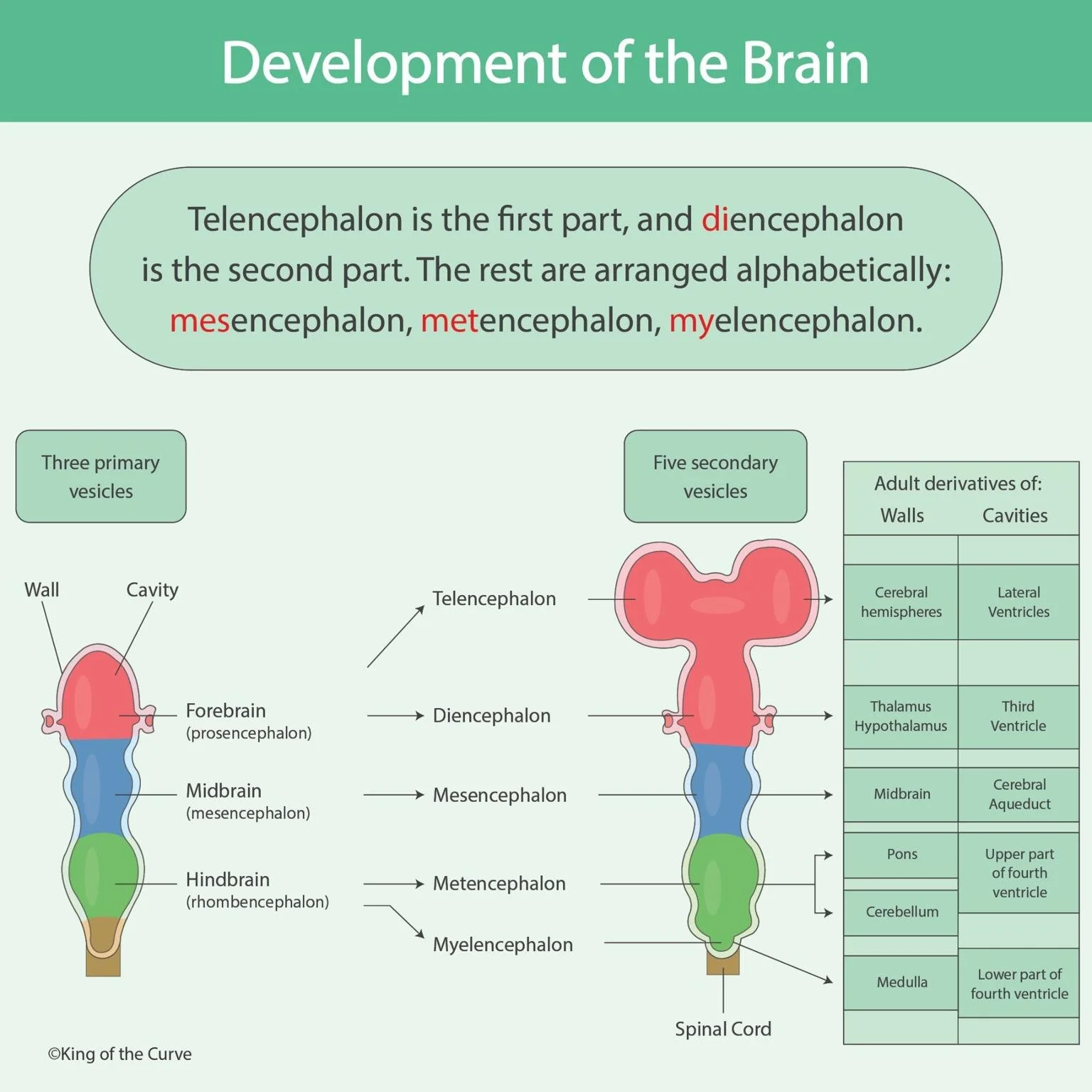🧠 Development of the Brain
The development of the brain is a highly orchestrated process that begins early in embryogenesis and continues into adulthood. In the early weeks of fetal development, the neural tube differentiates into distinct brain vesicles that eventually give rise to all the structures of the central nervous system (CNS).
📍 Overview of Brain Vesicle Formation
In the 3rd to 4th week of gestation, the developing brain forms three primary vesicles:
Forebrain (Prosencephalon)
Midbrain (Mesencephalon)
Hindbrain (Rhombencephalon)
By the 5th week, these primary vesicles further divide into five secondary vesicles, giving rise to specialized brain regions.
🗂️ The Five Secondary Vesicles
The five secondary vesicles are:
Telencephalon – develops into the cerebral hemispheres
Diencephalon – forms the thalamus and hypothalamus
Mesencephalon – becomes the midbrain
Metencephalon – gives rise to the pons and cerebellum
Myelencephalon – develops into the medulla oblongata
💡 Mnemonic: After Telencephalon and Diencephalon, the rest can be remembered alphabetically: Mesencephalon → Metencephalon → Myelencephalon.
📊 Table: Primary & Secondary Vesicles with Adult Derivatives
| Primary Vesicle | Secondary Vesicle | Adult Derivatives (Walls) | Adult Derivatives (Cavities) |
|---|---|---|---|
| Forebrain (Prosencephalon) | Telencephalon | Cerebral hemispheres | Lateral ventricles |
| Diencephalon | Thalamus, Hypothalamus | Third ventricle | |
| Midbrain (Mesencephalon) | Mesencephalon | Midbrain | Cerebral aqueduct |
| Hindbrain (Rhombencephalon) | Metencephalon | Pons, Cerebellum | Upper part of fourth ventricle |
| Myelencephalon | Medulla oblongata | Lower part of fourth ventricle |
🧩 Functional Significance
The differentiation of these vesicles ensures proper structural and functional specialization within the CNS. Disruption in this process can lead to congenital malformations such as holoprosencephaly (failure of forebrain division) or anencephaly (absence of major brain portions).
📌 Summary
From the initial formation of three vesicles to the specialized five-vesicle stage, brain development is a precisely timed process. Understanding these stages helps in the diagnosis of developmental anomalies and provides a foundation for neuroanatomy studies.
Frequently Asked Questions (FAQs)
-
Aim for 4-6 focused hours, ensuring you incorporate breaks to avoid burnout.
-
Practice mindfulness techniques, take practice exams under realistic conditions, and maintain a balanced lifestyle.
-
Set short-term goals, seek support from mentors, and reward yourself for small achievements.
-
Regular exercise improves focus, reduces stress, and enhances overall mental clarity.
-
KOTC offers personalized learning tools, gamification features, and adaptive question banks to help students stay on track without burnout.


